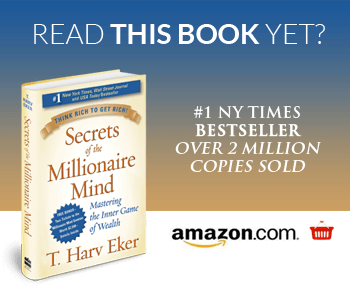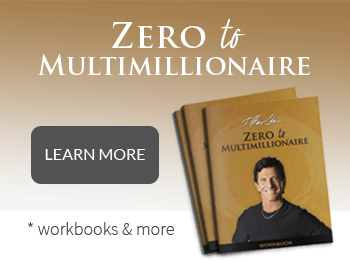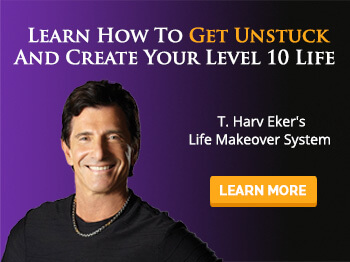The time and date is set. You made sure you arrived early because you wanted to do everything you could to make a good first impression. It’s your favorite “after-work” haunt so you’ll feel right at home.
You’ve rehearsed your intro, keeping things light and hopefully funny, but you’re anticipating the words that’ll give you an opportunity to really get the conversation going. At the end of the day, though, you just hope you like them and they like you.
Sounds like going out on a first date, yes? My partner and I “date” as much as we can, but a first date has been so long for me I’m not sure I’m the guy you want dating advice from!
I do know something about creating great first impressions with potential clients or business partners. Just like any other human connection, there are things we can do to give ourselves a chance of making a great impression and set ourselves up to get what we’re looking for.
In fact, most of the top marketers in the world hardly ever talk about product! They talk to get people to like them, so when the moment comes the selling is easier.
The one thing that’s critical for everything in life—not just in negotiations but in making a connection with anyone—is to create affinity. Affinity is closeness, warmth, and likeability. People generally act based on emotion (Something to remember when marketing!), and then they justify their decisions with logic.
In other words, people will usually give a much better opportunity to someone they like.
I’m not talking about flattering butt-kissing. That’s fake affinity. More than likely most people will sniff that out and get turned off quickly. Genuine affinity means genuinely intending to make an honest and real connection with the other person.
We do it all the time and probably don’t think about it much: finding something in common. I’m like you is another way of saying I like you. Take this to another level by stating your intention for a win-win situation early and often. It’s as simple as saying something like, “I want to make sure this works for you.”
Also, think about how disempowering the word “but” can be in a conversation. Think about what it feels like when you are trying to get your point of view across to someone, and they respond by saying, “Yeah, but …” It’s as if everything you just said was negated. It stings. Avoid “buts”.
These things work great for when you’re trying to convince your partner to see the movie you want to see, or get your kids to eat their vegetables, or get a vendor to give you the pricing you’re looking for.
There is another level to this, though, a spiritual warrior component. Your intention has to be genuine caring for what the other person wants, and the focus and confidence to know that you can create the win-win. How Zen can you get?
Over the next week or so, use due discretion and try to make connections with strangers if the moment is appropriate. You don’t have to try to “get” something from them. Just create affinity. Use phrases that show you understand. If you disagree, make your point without saying “but”. Do this with people that you know! Let us know what happens!

Happy New Year! I am excited to share with you exciting, new journeys and experiences as 2012 reveals itself to all of us.
With each new year comes changes big and small . . . whether we like it or not! And because change is inevitable, and because we have just entered a new year, I wanted to touch on this subject just a little deeper.
Last week we took a look at how anger is one of the bitterest pills you can swallow. It’s the pill that doesn’t dissolve. It just sits there, potentially poisoning any and all good that comes into our lives.
You can’t have a fresh start to a relationship—with people, money or anything else—until you’ve cleaned up that lingering resentment with your parents, spouse, friend, lover, relative or whoever hurt you in the past. If you don’t clean that up first, you’ll drag that hurt with you.
A quote that I really like is from a book called ‘Your Cosmic Destiny’ by W.A. Chapman. It says, “Holding on to anger and resentment is like drinking poison and expecting someone else to die.”
So how do we let go of anger? We looked at opening ourselves to the other person’s perspective: there might be something going on that we didn’t know about.
The other part of letting go of anger is to forgive those people, even if they were dead wrong; even if they’re still freakin’ jerks. We all do the best we can at any given time. It may not be one of our best moments in life, but it’s the best for that time. Understanding this simple truth makes a huge difference in letting go.
Whatever happened to make us so upset, it’s not the event that has us any more. It’s the story about the event and our choice to keep that story alive. All we have to do is remind ourselves that both us and those we’re angry with were not getting (or perceived we weren’t getting) what we wanted, and both www.fertileheart.com/clomid-clomiphene-infertility-treatment/ side’s reactions are based in fear. Our conditioning blocks our higher selves from stepping back and looking at things as they are, not as we fear them to be.
When we become aware, though, we now have an opportunity to make new choices. We can consciously choose to come from our higher self—be the person we know we can be—forgive and move on, remembering that punishing them any longer only hurts us.
So you don’t necessarily forget but you do necessarily forgive. Forgiveness is the key because when you release them from their deed (or non-deed as may be the case) you automatically release yourself from the anger and negative emotion around that deed.
It’s been way too long, with too much hurt and too much pain. For your own sake, tell whoever you need to that you forgive them, or that you’re at least willing to let it go. Forgiving is not condoning, and it’s certainly not forgetting. Forgiving is our way toward healing.
Here’s what’s important to remember, though: do not expect ANYTHING from them! Heck, in your mind that person “deserves” your forgiveness, but they may feel like they don’t need any forgiving. They might actually be resentful toward you, but that’s okay. It’s not about them. The process is for you. Say your piece, hear and accept their side, and be on your way in peace.
What was the most impactful result of forgiveness that you’ve experienced—from either side of the equation? What significant changes in your life happened as a result of clearing anger and resentment with someone important in your life? We want to hear from you!

So … how’s your mental health these days?
There’s so much going on in the world—things certainly aren’t boring, that’s for sure! Signs of change are apparent, from cautious optimism on the economic front to political shifts around the world. While some respond to change with excitement and hope, others can see the same events with fear and apprehension, responding much differently.
I like the example of the twins abused by their father in childhood. One becomes abusive toward her own family later in life, while the other expresses the love and caring with her future family absent from her experience. Both ask, “How else would I be?” And both are right.
There are more than enough reasons to choose non-supportive responses to life’s shocks and tribulations, but we’ve still got to keep our inner game tight if we want to be happy and successful—regardless of what happened decades ago or last night—so let’s do some more mental check-ups, yes?
We’ve got to keep an eye on negative conditioning that takes hold and steers us away from what we want. We’re not going to let non-supportive conditioning take root, or we’re going to begin the process of uprooting that negativity.
In the example of the twins, very few if any people would knowingly choose to participate in abusive and unhappy relationships, yet that’s what shows up for the one that linked love with conflict rather than affection.
So now what happens? The twin that links love with abuse gets angrier, no matter who the relationship is with—the angrier she gets, the closer she comes to a point in her life where she’s sick and tired of being angry. Finally she says, ‘I just want to be happy and peaceful.’ She asks the same mind that created the link between love and abuse what to do.
Not knowing anything else but conflict, that same mind says, “If you want to get rid of the anger you’re going to have to get rid of the love,” and so she does, subconsciously. She sabotages herself or just takes herself out of the game completely.
By the way … the same goes for money, yes or yes? People with negative associations to money—who still make a lot of it anyway—manage to give it away, make bad investments or they have a divorce. Or people just don’t make it at all. Whatever the non-supportive associations, it usually comes down to an issue of awareness—knowing that these things are going on. And this goes for everything, not just money or love.
So what’s your condition? Stable? Critical? Are those roots supportive or non-supportive toward your success-building? Are they deep or are they shallow?
It takes conscious effort to uncover the different types of conditioning we undergo—from family roots, to school, church, and media, culture— the list goes on and on. It’s nothing that can truly be grasped and appreciated in just a few blogs.
However, take advantage of a community of like-minded people. Share your thoughts on the different ways we’re conditioned, the subtle yet profound ways this conditioning impacts us, and some ways you “debug” those programs—whether from Million Mind seminars or some tactics you’ve picked up along the way. We want to hear from you!
Uncertainty is something most people avoid like the plague. There’s nothing like comfort in knowing we have a place to lay our heads every night, knowing we have things to do, food to eat, materials we need for the basics of a decent life.
If we’re honest, we know that we also need a little mystery, surprise, uncertainty. There’s a thrill to that. The thing is sometimes it comes in forms that we weren’t expecting, and instead of embracing uncertainty, we fight against it. ‘This isn’t what I was expecting! This isn’t the way things are supposed to be!’
And instead of staying in flow, we stay stuck while the universe may very well had intended for us to roll with the change; having faith in ourselves and in life. There is wisdom in embracing uncertainty.
Understanding this, we also come to realize the goals we move toward are rarely going to occur in a straight line from A to B to C. That’s completely unnatural in the universe. It’s literally impossible.
Wealth, money, relationships; success in any arena in the real world happens in a zigzag. You have to expect to constantly correct yourself. Constantly! And when you do that you will eventually land your success. The only time you won’t land is if upon making ‘mistakes’ or thinking yourself a ‘failure’ you give up or you don’t learn anything.’
It’s hubris for anyone to think they’re like a genius and you’ll get it right every time. Maybe you won’t. We have our experience to help us, though, and our desire to learn and become more of what we want, open to the guidance and wisdom of those who have already gone down those paths.
If you’re a perfectionist, give it up. It’s pointless. Mistakes, corrections, mistakes, corrections! That’s the way it is. Mistakes are the natural ways we learn.
What happens to babies when they first learn to walk? They fall! And what would happen if they didn’t learn from those mistakes? They would just stay down there! But they don’t know that yet. Nobody taught them “failure.” Quite the opposite they tend to get encouragement. So they just get up and try it again. Pretty soon, they’ll resent you trying to help them; that’s how confident they become in themselves.
If they were an adult, though, here’s what would happen. They would fall, stay down there, and get real comfortable. ‘Oh, God I don’t even deserve to walk! It must not be meant to be! I should just lie there.’ We justify it or we blame. ‘Mom never taught me right! It’s her fault!’
Imagine how less insecure we become when we get comfortable making mistakes, confident enough in ourselves to say, “That’s okay, because I’m going to get it right next time.” And maybe we won’t! It’s still okay, because the confidence runs so deep it doesn’t matter how many times it takes. You know you’re going to nail it and be happy all the while because you’re implementing this practice into all facets of life, from relationships to business.
What’s your zigzag story? Have you reached a cherished goal by means you never imagined yet you arrived at the destination anyway? There are stories grand and ordinary that shed light on the power of universal correction. We want to hear yours!





